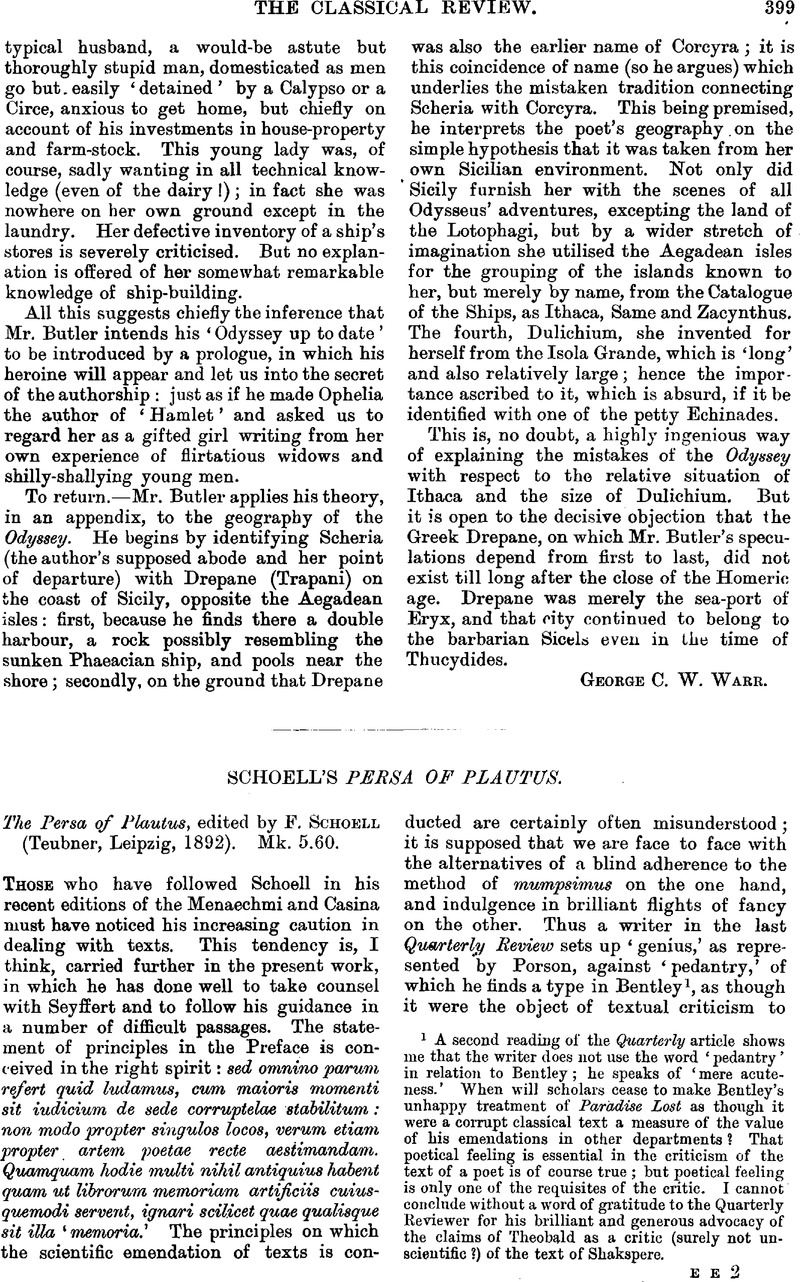No CrossRef data available.
Article contents
Schoell's Persa of Plautus - The Persa of Plautus, edited by F. Schoell (Teubner, Leipzig, 1892). Mk. 5.60.
Published online by Cambridge University Press: 27 October 2009
Abstract

- Type
- Book Review
- Information
- Copyright
- Copyright © The Classical Association 1892
References
page 399 note 1 A second reading of the Quarterly article shows me that the writer does not use the word ‘pedantry’ in relation to Bentley; he speaks of ‘ mere acuteness.’ When will scholars cease to make Bentley's unhappy treatment of Paradise Lost as though it were a corrupt classical text a measure of the value of his emendations in other departments? That poetical feeling is essential in the criticism of the text of a poet is of course true; but poetical feeling is only one of the requisites of the critic. I cannot conclude without a word of gratitude to the Quarterly Reviewer for his brilliant and generous advocacy of the claims of Theobald as a critic (surely not unscientific ?) of the text of Shakspere.
page 400 note 1 It is a Pity that the quotations from Festus, Paulus, ete. are not given in full. Similarly in Mil. 24 the reader wants the actual words of Vorro; the essential part is omitted by Goetz.
page 401 note 1 Quae haec res est?=quid ho est? a question requiring no answer. Quae res est?=quid est? a, question requiring an answer.
page 402 note 1 This would have to be addressed, to Sagaristio: ‘You shall have it’ (i.e. the money).


